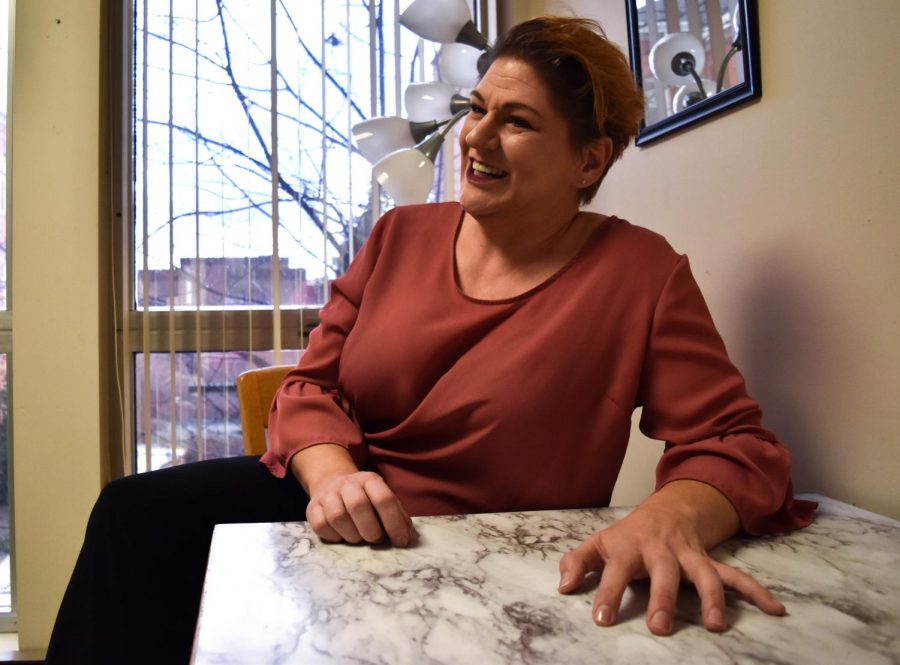Echo chambers destroy civil discourse
Social media hinders unbiased spread of information, understanding instinctual desire can offset difference
JENIN REYES | THE DAILY EVERGREEN
Michelle Kistler, communication professor, discusses the impact of echo chambers and how humans create them Monday in Murrow Hall.
October 30, 2018
Meaningful discussion and discourse are what keeps a social species like us flourishing. It encourages us to question our own values and ideas. So a place where none of this happens and people just wallow in their own self-indulgence seems counterproductive.
That’s exactly what echo chambers give to those who are a part of them.
An echo chamber, like the name suggests, is a place where one’s own ideas are reflected and all they hear is the same or similar perspectives. The people involved in this only follow those they agree with or outlets that support their beliefs.
Social media is one of those creations where our control seems to vary moment to moment. While it is up to us to decide what we see, there are many tools that work in the background.
Michelle Kistler, professor of communication at WSU, understands where this principle comes from.
“Algorithms make you see what you’ve already seen,” Kistler said.
These news and social media algorithms function to keep you on the site, and if that means sending you down a rabbit hole they will do that. This can be scary when you think about all the things we browse daily on the internet.
But that’s just the information side.
The real problem comes from the fact that echo chambers are completely normal. It’s only natural for us to go with what we already know because it’s ingrained in our DNA, since the unknown will always be dangerous to an animal.
This will always lead us toward what is comfortable and familiar, not only for things like our foods, but also for our ideas and values. Having your ideas reinforced takes almost no time at all and brings with it loads of satisfaction.
“Humans are gregarious animals,” Kistler said. “They want to come together with like-minded people.”
But as we know with the dreaded couch lock, a term which describes the feeling of sedation cannabis users experience, just because something is comfortable doesn’t mean it’s good for you. Just like how you have to work out to keep in good physical shape, you have to argue for yourself to stay in good mental and ethical shape.
“You have to choose to exit the echo chamber,” Kistler said. “It’s uncomfortable but that’s where the critical thought comes from.”
Anyone can get caught in an echo chamber and many willingly create their own. We stick with the things that we know and the people whom we agree with. We want to seek out those who will support us, but we think that means only those we agree with.
We all want to meet people we’re compatible with. The distinction should be in their personalities, not in the policies they agree with or the people they support.
If we choose to be friends with people who connect with us but might have differing opinions, we open ourselves to a whole new avenue of valuable and insightful discourse. If we apply that to social media, we have even more opportunity for growth as people.
This is as simple as stepping out of your regular news source for a time. For most of WSU that means looking at more Fox News and the like. The good part is you don’t have to agree with or even like what you see for it to be beneficial.
We run into things we disagree with all the time. How we choose to address those ideas separates critical thinkers from the rest of society. Thinking about differing ideas in terms of the others’ perspective, remembering that they want to be happy just like you opens up more insightful discussion.
The fact that you’re seeing different information means you are synthesizing that information one way or another. This will help you see your opinion from a new angle and understand where others are coming from.









